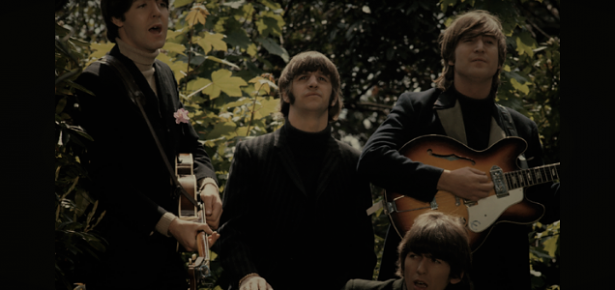
It was fifty years ago, on 10 April 1970, that Paul McCartney announced the break-up of the Beatles. That the end of the Beatles came so soon after the end of the 1960s helped to cement the association between the decade and band. An optimistic perspective on the relationship between the 1960s and the Beatles was provided the following day in a Daily Mail article entitled ‘How they changed and how they changed us.’ Before the Beatles, Britain had been a peaceable kingdom characterised by conformity, order, deference and innocence. Then, ‘when they arrived things changed’ in every conceivable respect. Class hierarchies and sexual reticence collapsed. New looks and sounds announced themselves, as the North and the young led the way. Towards the end of 1970, John Lennon reached the pessimistic conclusion that ‘the Beatles myth’ had served to disguise the stasis in British society. ‘Nothing happened except that we all dressed up,’ he lamented. ‘The people who are in control and in power and the class system and the whole bullshit bourgeois scene is exactly the same.’
In The Beatles and Sixties Britain, I’ve steered a path between these models of change and continuity by examining the creative tension between the Beatles and the society in which they lived and worked. The Beatles’ impact extended well beyond the realm of entertainment. Within months of their first chart-topping single in 1963, the band and their fans had been used as a yardstick against which to measure virtually every facet of society: class and age, gender and sexuality, Church and Crown, region and nation, economics and politics.
Later in the decade, the Beatles sought to channel their creativity into pioneering new forms of living, loving, dressing, worshipping, working, selling, lobbying, thinking, performing and maturing. Somewhat unwilling targets of social, cultural and political commentary in the first half of the 1960s, they instigated such debates in the late 1960s to effect societal change. Celebrity granted them a hearing but not acceptance. Their activism often simply highlighted their idiosyncrasy and associated them with some of the period’s most unpopular and eccentric causes. The more the Beatles intervened in public affairs, the more alienated they became.
The Beatles were therefore unrepresentative representatives of sixties Britain. But being atypical did not render them peripheral. The controversies that they generated functioned as a stress test for institutions and identities, at once displaying the possibilities and establishing the limits for radical transformation in the sixties. Reactions to the Beatles dealt with the weightiest of subjects, however glibly: the condition of modernity, the meaning of art, the relationship between state and society.
Revisiting these controversies shows how and why the Beatles inspired phobia as well as mania among their contemporaries. The Beatles’ critics were not simply curmudgeons, killjoys and contrarians, but people who had reason to believe that their cardinal values were threatened by the band and what it represented. The irreconcilable divisions between the the Beatles’ champions and detractors caution against generalising about the sixties. Neither the Daily Mail’s positivity nor Lennon’s despair in 1970 could account for the sheer lack of consensus about the Beatles in sixties Britain. The Beatles and Sixties Britain aims to show how the band served as a common reference point, around which people could argue about the present state and future direction of society.
Latest Comments
Have your say!